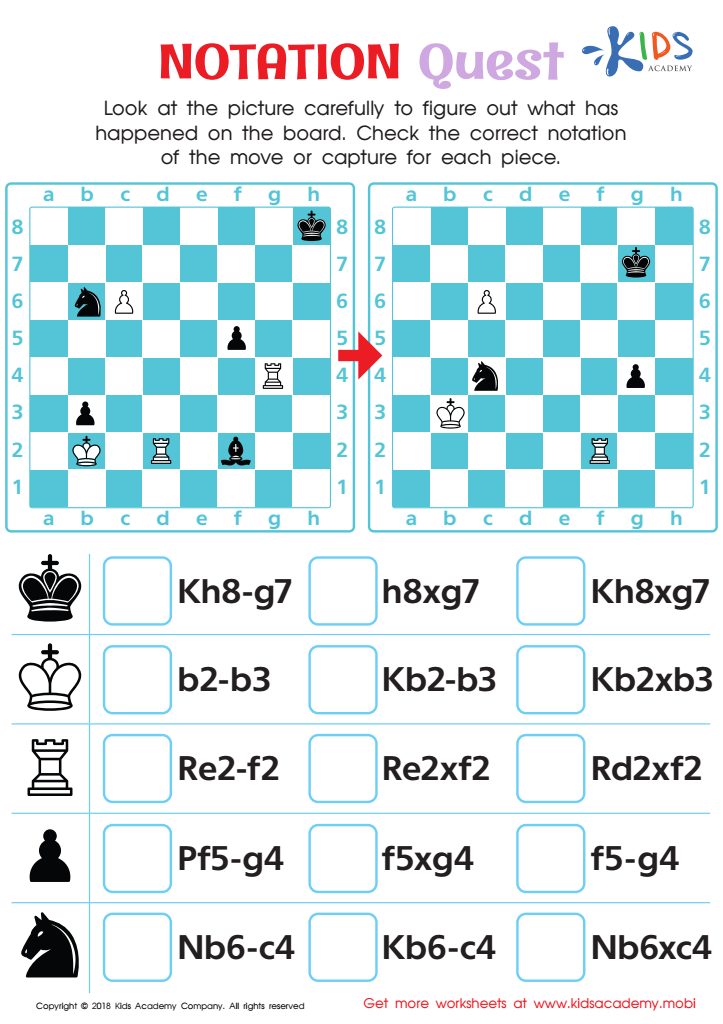Reading sheet music Worksheets for Kids
1 filtered results
-
From - To


Notation Quest Worksheet
Question/Answer
What does the Reading sheet music skill mean when it comes to Grade 1 Chess learning?
The mention of "Reading sheet music" appears to be a mix-up, as it doesn't directly relate to learning chess. Reading sheet music is a skill associated with music education, involving understanding musical notation to perform music. For Grade 1 Chess learning, relevant skills would include understanding chess rules, board setup, piece movements, and basic strategies, not reading sheet music.
Why is the Reading sheet music skill important for Grade 1 students?
Reading sheet music is crucial for Grade 1 students as it lays the foundational skills for understanding and interpreting music notation. This skill enables them to play instruments accurately, follow musical compositions, and enhances their ability to express creatively through music. Early proficiency in reading music also supports cognitive development, including improvements in memory, attention, and spatial-temporal reasoning.
How to train the Reading sheet music skill in Grade 1 students learning about Chess?
Integrate music notation into chess lessons by using musical notes to label chess pieces and moves. Start with simple exercises, associating each piece with a note or rhythm. Use flashcards to match chess moves with their musical equivalents, and incorporate simple songs or rhythms that describe the rules or strategies of chess.
 Assign to the classroom
Assign to the classroom


.jpg)









